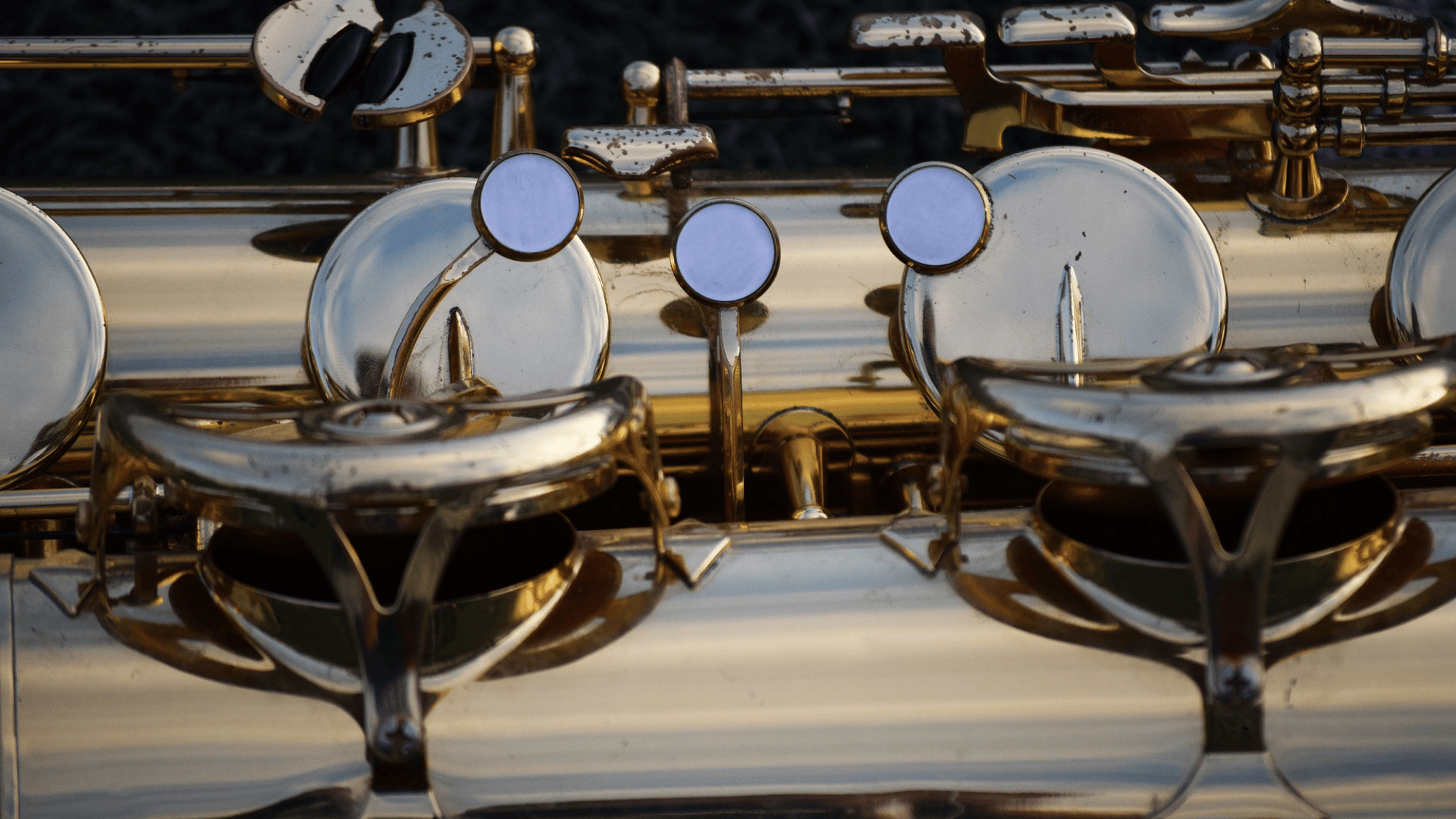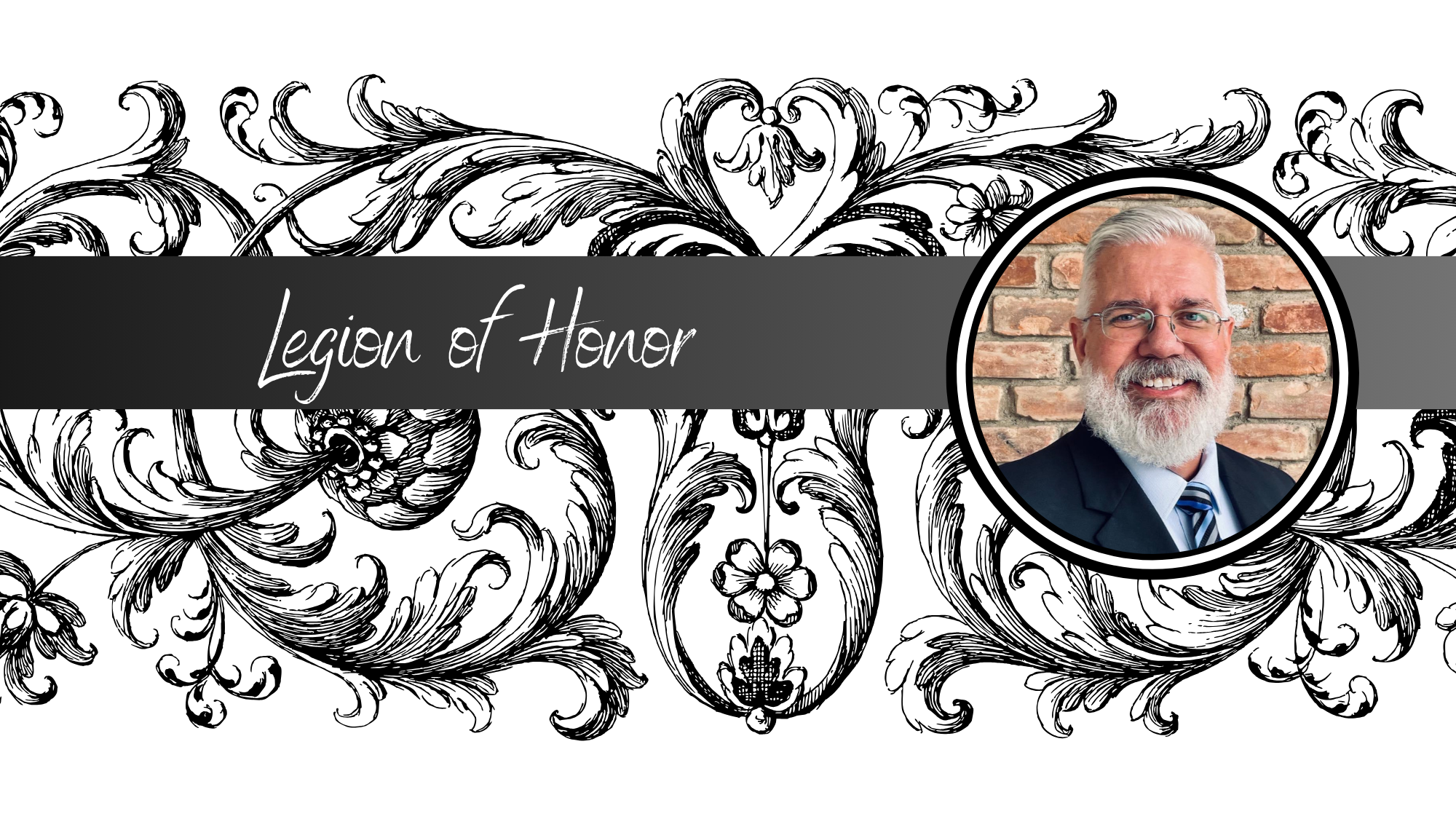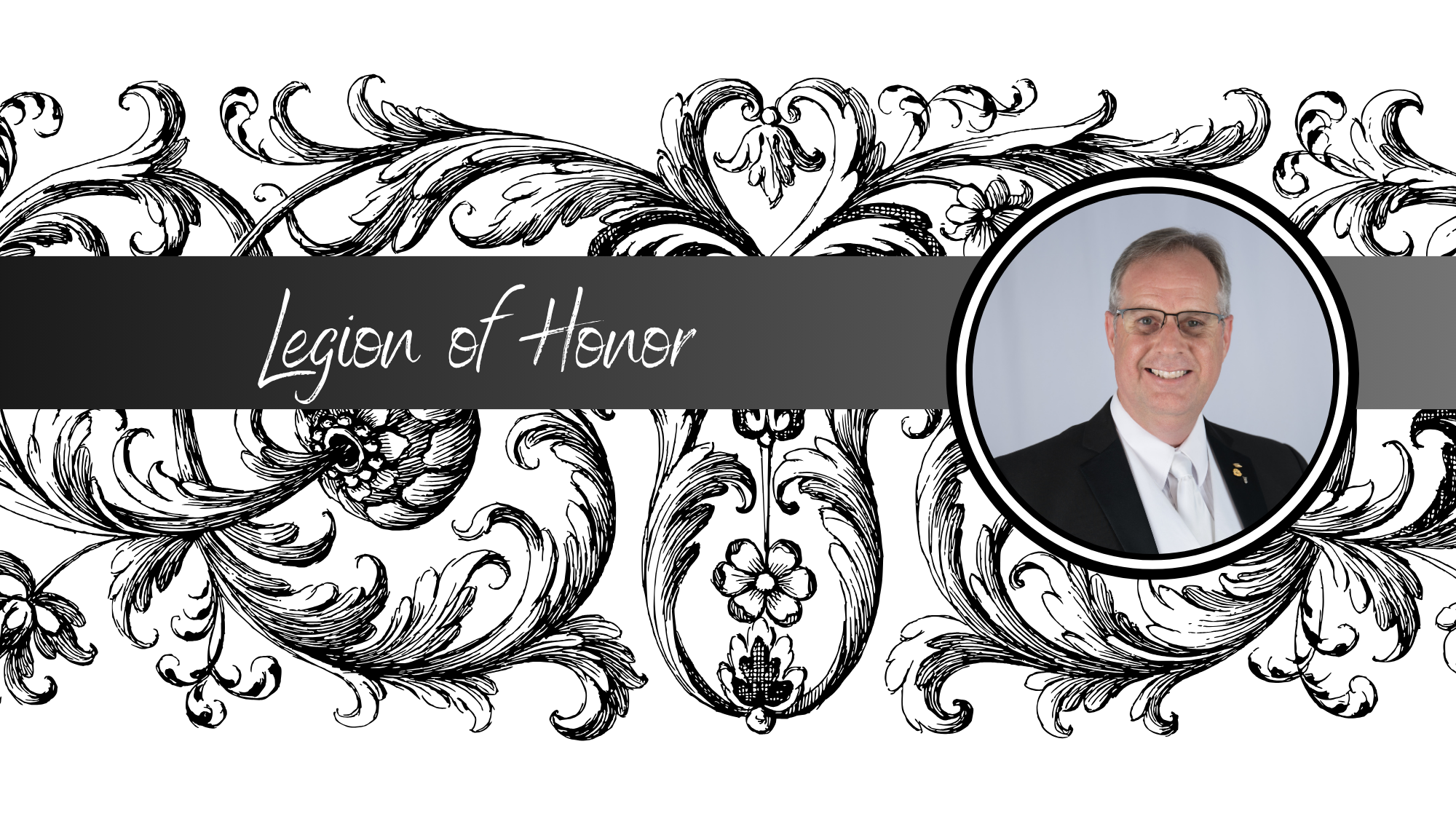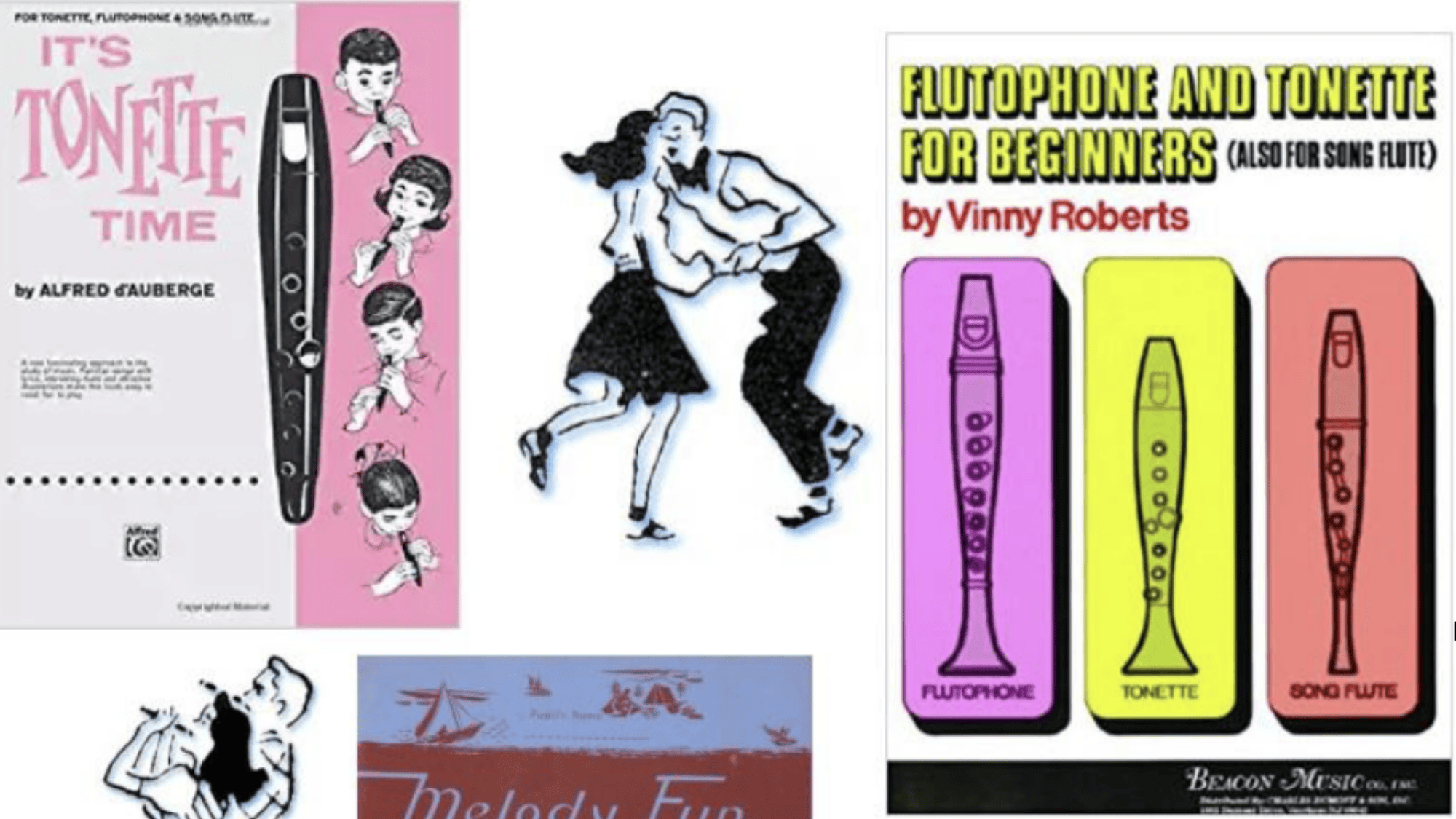 These originally appeared as blog posts on andrewhitz.com
These originally appeared as blog posts on andrewhitz.com
As the result of great teaching, I was required to do a number of things in college that directly prepared me to succeed as a professional musician. Here are five of those things that helped me to be prepared when my phone first started ringing.
Practice Sight-Reading
The skill I developed during college from which I have profited the most is practicing sight-reading. As with many musicians who got their “break” from being a sub, I didn’t have much time to be able to prepare for my first ever gig with Boston Brass. Filling in for someone in an emergency is by far the most frequent reason for someone getting a call to sit in with an ensemble, large or small. And most emergencies don’t happen well in advance!
In January of 2000 my graduate school teacher, Sam Pilafian, got a call from a member of Boston Brass explaining that their tuba player had become very ill and couldn’t make their trip to Colorado to perform at the CMEA. They called to check his availability. Luckily for me Sam was busy, and he gave them my name along with a strong recommendation. He later told me he mentioned to them that I was professional and could sight-read anything. I got the call at 10 pm and was checking in at the airport to fly to Colorado at 5 am the next day.
My ability to sight-read well came from years of practice at the insistence of Rex Martin during my time at Northwestern. I have an amount of respect for Mr. Martin that I could not possibly put into words in an article. The thing I am most thankful for from his tutelage was his insistence on me improving my sight-reading skills.
He asked me if I practiced sight-reading regularly. I told him I did. He then asked me if I borrowed music from other students who played a variety of instruments on a regular basis. He then simply smiled and said that I needed to work on my sight-reading every single day.
It was very easy to simply knock on the practice room door next to mine and ask that person if there was an etude book I could borrow for 10 minutes. The key to practicing sight-reading is to open the book, look at the page for 30 seconds, and then play it down from top to bottom. Do not stop for any reason at all. Remember above everything else that you are making music, even when reading something for the first time.
Musicians are storytellers. Sadly, most musicians tell an incredibly boring story when sight-reading, even when they are hitting all the right notes and playing all the right rhythms. Most musicians sound like they are simply doing a math problem when they sight-read. I was made to always begin saying something musically.
By regularly sight-reading music from other students and holding myself to an incredibly high standard I began to improve at a very rapid rate. Sight-reading started to become a strength. There is not a faster way that I have found in over 20 years of teaching to get a kid to stare at the floor and slouch their shoulders than asking them if they are good at sight-reading. This is an opportunity! You can make sight-reading a calling card! This might be the fastest way to separate yourself from the pack. If you develop a reputation while you are still in school for being able to sight-read anything, you will reap the benefits later in your career, either as a teacher or a performer.
Finally, if you are reading this and thinking “but I hate sight-reading,” keep one thing in mind: rarely do people hate performing tasks they are good at! The more proficient you become at something, the more you will enjoy it. Practice sight-reading regularly and you will be very happy with the results. My job with Boston Brass for 14 years was a direct result of my ability to sight-read in many different styles in front of 1200 music educators that night in Colorado – and that all came from lots and lots of practice.
(Thank you Mr. Martin!)
See Lots of Live Music
Any music student knows it is his or her job to listen to music. This will not be news to anyone. Along with practicing, this is the most basic level of homework for any musician. Listening to great music reminds us of two things: what is possible and why we do what we do. These are great lessons even the best musicians in the world must be reminded of from time to time. Listening to music live is the best way to learn these lessons.
Seeing live performances has been a passion of mine from a very early age. While listening to a recording of great music is a wonderful and valuable experience, there is something special about watching that music being made right in front of your eyes.
Any great performance I have experienced is a conversation between the artist and their audience. The conversation may look quite different at a Larry Combs recital than it will at an AC/DC concert, but they are both conversations. All great performers feed off of the energies of both the audience and the moment. This is something that is very difficult to write or talk about and yet incredibly easy to understand when experienced.
Seeing live music is the best way for music students to be reminded that their performances are in fact collaborations with both their fellow performers and the audience. My number one criticism of students performing juries tends to be that they are not speaking to me as an audience member. Many students, through lack of experience, walk on stage and have a musical conversation with themselves while the faculty watches. Frequently, the conversation doesn’t even include the piano player!
During my time at both Northwestern and Arizona State, I literally saw a few hundred live concerts. Some of them were life changing, like the first time I saw the band Phish. Others were average at best and nothing that I ran home to tell my roommates about. At one point in my life, I felt that only witnessing great music would directly influence my musical personality in any significant way. This is not true! Every time I hear anyone play any note or phrase I am filing it away under something I want to sound like or something I don’t want to sound like. A bad performance can only reinforce your musical opinion and that is a very good thing.
I also found it beneficial to occasionally take a step back and analyze a performance for such things as programming, stage presence, program notes, etc. You can use all of that information, both good and bad, to help you with everything from how you conduct yourself in a jury to how to plan a recital program. The best performers in the world have put a lot of time and thought into every aspect of their performance. This is much easier to experience and truly grasp in a live setting than by reading about it in an article like this!
Finally, money is certainly tight for just about any college student. But if you aren’t doing your homework, someone, somewhere, is. I made some sacrifices in college that enabled me to spend quite a large percentage of my disposable income on seeing live music. This included occasionally traveling a very long distance to see it as well. My first trip to the New Orleans Jazz and Heritage Festival was three days that shaped my musical personality in ways that cannot be described. Sure, I was eating bagels without cream cheese and steamed broccoli with rice for a month afterward because I was so broke, but I would do it all over again a thousand times over! Sitting ten feet away from Lionel Hampton was worth checking the couch for loose change when I got home!
GO SEE LIVE MUSIC!
Treat Every Rehearsal and Concert Like It’s a Paying Gig
One of the best things that both Rex Martin and Sam Pilafian did for me when I was in college was preparing me for that scary three word phrase that collegiate music teachers like to throw around to scare their students: the real world.
The professional music world is an incredibly straightforward one in almost all respects. There is no secret to unlock that enables you to function in this business. The good news is that almost all of it is simply common sense. But this straightforward world is incredibly unforgiving when you mess up. There are now a greater number of highly qualified players to take your place if you are not getting the job done than at any time in history. That means you not only have to play well, but also need to be the consummate professional to put yourself in the best position possible to get or keep gigs.
The list of things that you have to do is quite simple and well known. The challenge is fully implementing this list while you are still in school. It is very difficult to flip a switch the moment you are handed your diploma and suddenly start acting like a professional.
How you treat rehearsals and concerts is only a part of what goes into being a professional but it is certainly one of the most important. A college student should never walk into a rehearsal or gig the moment it is scheduled to begin. If you do that on a professional gig you won’t ever be called again. Are you the person who has a pencil at every rehearsal or are you the one that asks the guy next to you to use his 20 times a rehearsal? Are you the person who forgets his bow tie? If you are using an excuse for being late to a rehearsal would you use that same excuse if the rehearsal was with the New York Philharmonic or would you find a way to get there? Would you have practiced more for a rehearsal if you were subbing with the Boston Brass?
The reputation you develop while you are in music school, good or bad, will follow you for the rest of your career. Music has always been a word of mouth business. People will only recommend you to a colleague when they know that you will play well and be a professional. Otherwise, it will reflect poorly on them for making the recommendation in the first place.
Rex Martin taught me a valuable lesson my sophomore year. One morning I went to take a shower and accidentally locked myself out of my room wearing nothing but a towel in the middle of a Chicago winter (sorry for the visual.) I called the RA on duty and got an answering machine. I then called Mr. Martin to explain that I would possibly be late to brass choir rehearsal, which was starting 25 minutes later. I gave him the full story with every single detail and apologized for possibly being late. He then calmly said: “See you at 12:15 sharp.”
At this point I sprung into action, determined to get there just to show him that I could do it. I borrowed my neighbor’s clothes (who was a full 8 inches shorter and at least 2 shoe sizes smaller than me!) and ran, without a coat, across campus to interrupt my roommate’s music theory class to get his key. If I had been going downtown to sub with the Chicago Symphony, I would have done that before calling and explaining that I might be late. Mr. Martin made a truly lasting impression with me that day. He walked in at 12:15 to lead the rehearsal, looked back and saw me seated, and gave me the smallest nod you can imagine.
The sooner you can treat all playing engagements of any kind like gigs, the better off you will be when you enter the real world.
Played for Every Professional Player That Passed Through Town
Something I was taught at a very early age was to try and play for every single professional that came anywhere near my hometown. Sometimes this was in master classes and other times this was in private lessons. Performing in front of as many professionals as possible was immensely important in me gaining the confidence to play at my best in a wide a range of circumstances.
Master classes are the easiest place for a college student to gain access, even if only briefly, to a professional traveling through town. It was my experience that a visiting artist could say the exact same thing that my teacher had been saying all along but in just a slightly different manner and it would make everything click in my mind.
I am always telling my students that all performing and teaching, both good and bad, counts as “data” that helps to mold me as a musician. If I hear a concept put in a way that makes a lot of sense, I am of course sure to share that with my students. Likewise, if someone teaches something in a manner which doesn’t click with me or that I disagree with, it only serves to strengthen my own point of view. Keeping this in mind, any master class that I ever attend is worth my time. Always. And any great teacher will address exactly what you personally need to hear if they hear you play.
When I was a young student I was taught a great trick when someone was listening to multiple students play in a master class.
There are a few reasons for this. First of all, when conducting a master class it can be very difficult to keep track of time when working with students. If a teacher does not manage their time well, the student playing at the beginning of the class will always get extra time. It is very difficult to stick to time slots as a teacher and the people playing at the end are always the ones affected.
Another equally important reason is that it is natural to be distracted and nervous until you get in front of the group to play. You are going to retain very little information that is given to the players who play before you. If you volunteer to play first, you can simply relax, take notes, and learn from all of the people that play after you. Sometimes the information that is shared without you being on the hot seat can make the biggest impression.
I always raised my hand immediately in every single master class, whether I felt like playing that day or not. As a result, I played in every class, got at least as much time as everyone else that played, and was able to focus on the teaching, and not myself, for the remainder of the class.
Finally, it is great to be able to get a private lesson with someone passing through town. Speaking from experience, my schedule rarely allows time to meet with people individually but there is a trick to increasing your chances of hearing a “yes” when asking for a lesson.
First, contact the person before they come to your town or school. This has never been easier than it is now with email, Twitter, Facebook, etc. If you can’t find them through any of those channels, simply ask your teacher if they might know their info. It is a lot easier for me to schedule my day around giving a student a lesson if they contact me well ahead of time.
Second, you should always offer to pay someone for his or her time. Frequently, when a student asks a traveling professional for a lesson and offers to pay them, they will teach them for free. This is not always the case but it definitely sends the wrong message to not offer to pay someone for his or her time. Even if you are very upfront in stating that you have no money and understand that you wouldn’t expect them to be able to teach you, this will generally be well received. It might not get you a lesson, but you will leave a good impression in a business where impressions are imperative.
Got Out of My Musical Comfort Zone
I was raised as a classical player. I still consider myself a classical player who happens to be able to play some other styles of music. Growing up, I wanted to be the tuba player in a major symphony orchestra. In fact, I wanted to be in only the Boston Symphony. It was a great plan, but before Chester Schmitz retired, I was called by Boston Brass to fill in on that gig in Colorado. When I got there, half of the show was jazz, which included walking bass lines, playing a solo and even singing a tune. Thankfully, I had teachers along the way that had made me encounter all three of those things in performance before I was asked to do them in front of 1200 band directors.
When I arrived at Northwestern University, I already had a very wide range of musical tastes. In high school, I listened to just as much Led Zeppelin as Tchaikovsky. There was a very large disconnect however between the number of styles of music I listened to and the number I played on the tuba. This was not any sort of conscious decision but simply a product of being raised as a classical player.
I was lucky enough to try playing a little bit of jazz in both middle school and high school. I played the bass trombone parts in jazz band down an octave, which did a lot for developing my taste for jazz, but my performance of it was still very limited. My exploration of non-classical music did not expand outside of jazz band rehearsals and performances. That is until I got to college. Once I got to Evanston I was surrounded by music all of the time. Chicago is one of the best cities in the world for live music and I was suddenly introduced to a whole new set of friends with their own tastes and CD collections. It was an exciting time.
One of the best decisions I ever made was to formally pursue learning how to improvise. I ended up getting the number of a fantastic tuba player and teacher in Chicago named Dan Anderson. I took the El down to DePaul and took a few jazz lessons with him. This is where I really started to get the new language of jazz in my ear. Just like learning how to speak any other language, you have to immerse yourself in it. Dan showed me the different articulations, weights and note lengths that are all a part of “speaking” jazz. I only took a few lessons with him, but they were invaluable to me moving forward.
Next, I enrolled in Jazz Improv class with Tony Garcia at NU. He had a very organized and systematic way of teaching the art of improvising which I responded to well. Even if the class had only been listening to the examples he played for us and discussing them, it would have been one of the most beneficial classes I took during undergrad. I also began jamming with my friends with some frequency. It didn’t matter what instrument combination we could come up with. We would all pile into a practice room and play. Sometimes it was over a chord progression like the blues and other times it was just free improvisation. The ability to express myself through different sounds, even when they were completely off the wall and unconventional, ended up helping all aspects of my tuba playing. All you have in free improvisation is your storytelling. There are no right notes or wrong notes. No in tune or out of tune. Just a story. And most students of classical music (like me) can learn a lot from that.
Probably the pinnacle musical experience of my undergraduate studies was the last tune on my senior recital. It was an arrangement of Bathtub Gin, a song by the band Phish, for trumpet, trombone and tuba. Dear friends, John Butte, Ben Denne and myself had one simple plan: we had arranged the “head” to start the tune. We would then let the music go any direction it wanted to go and would bring it back around again in the end. We hadn’t planned the length or anything else about it.
It ended up being 10 minutes long and it was BY FAR the audience’s favorite part of the recital. Afterwards, my teacher Rex Martin was as excited about that piece as he had been about anything I had played for him in my almost four years at school. It was an amazing experience and a wonderful way to put a bow on my studies at Northwestern.
Next, I went to graduate school at Arizona State. Sam Pilafian, my teacher there, was already a very accomplished jazz tuba player and he wanted to get me exposed to it as well. His guitar and tuba duo, Travelin’ Light, was one of my favorite bands ever. I think I literally wore out their first album. When I got to school Sam told me that I was playing in a Dixie band called the Dixie Devils. He didn’t ask if I wanted to play in it. He just said I was. Even though I was terrified because I had never done anything like it, I simply opened my mouth and the word “okay” popped out. What an experience it turned out to be!
I was forced to read changes, navigate the roadmap of tunes (which would change on the fly!) and be ready for a tune to end in any of five different ways. There were hand signals at the end: stop on a dime, firehouse ending (four bars of tonic instead of one at the end), repeating a II-V turnaround. The first rehearsal required more ‘thinking on my feet’ than the previous 13 years of playing combined. I messed up a lot. And I played it right a lot. It was a very freeing experience to be forced to not know exactly how a tune was going to go.
It was also invaluable to be in an ensemble where I was BY FAR the greenest member. Everyone else was used to playing in jazz combos and other Dixie bands. The best and fastest way to learn as a musician is to surround yourself with people better and more experienced than you. I was forced to raise the bar constantly just to keep my head above water. I have never found a way to improve my musicianship on more levels and at a faster rate than by playing with the Dixie Devils. I wouldn’t trade in that experience for the world.
You never know what direction your career will take and I sure am glad that I was prepared for that day in 2000 when Boston Brass called. And since Mike Roylance is both young and awesome, I don’t think the Boston Symphony will be calling anytime soon. Luckily, I was prepared for my opportunity through preparation and being forced out of my musical comfort zone.






